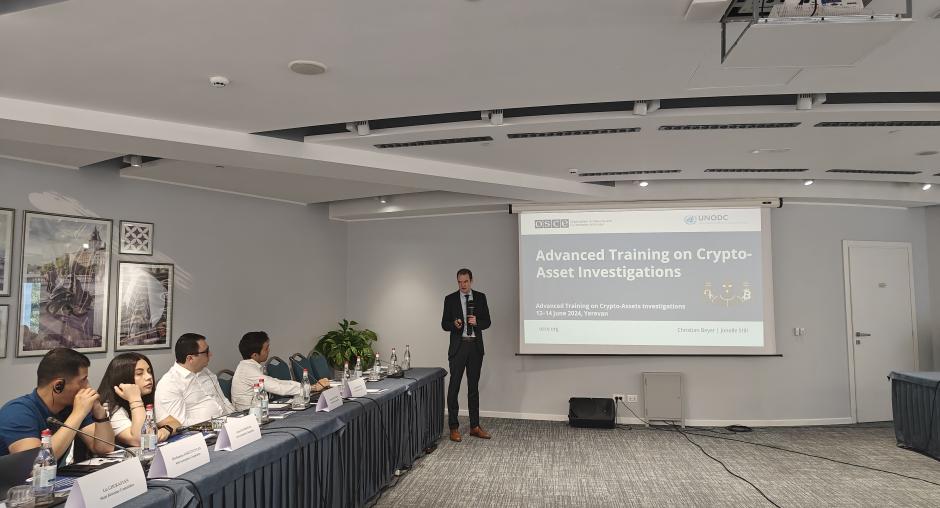Armenian public officials deep dive into crypto-assets investigations

Cryptocurrencies and other virtual assets can present a wide range of risks, including but not limited to money laundering, terrorist financing, and fraud. To strengthen Armenia’s crypto-related crime investigation capacities, the Office of the Co-ordinator of OSCE Economic and Environmental Activities (OCEEA), in partnership with the United Nations Office on Drugs and Crime (UNODC), gathered 23 representatives from the public sector in Yerevan from 12 to 14 June for a targeted training session to foster their expertise in this area.
Training participants became acquainted with advanced techniques and practical skills in the field, including methods for tracing criminal transactions across different blockchains, case studies highlighting real-world scenarios, and best practices from other law enforcement agencies. They also received an orientation to specialized analytics software as well as open-source tools.
“One of OCEEA’s top priorities is ensuring Armenia's ability to address financial crime, especially involving virtual assets. We work closely with Armenian national agencies engaged in combating financial crime, with a particular focus on money laundering. We are pleased to see significant interest in the activities of this project,” said Vera Strobachova-Budway, Acting Senior Economic Officer at OCEEA.
“This is the second training on investigating virtual assets for Armenian authorities, and the OSCE will continue to support Armenia in its efforts to combat money laundering through virtual assets,” she added.
The training is part of an OSCE extra-budgetary project on “Innovative policy solutions to mitigate money-laundering risks of virtual assets”, funded by Germany, Italy, Poland, Romania, the United Kingdom and the United States. The project supports OSCE participating States in building national capacities to mitigate criminal risks related to virtual assets.
